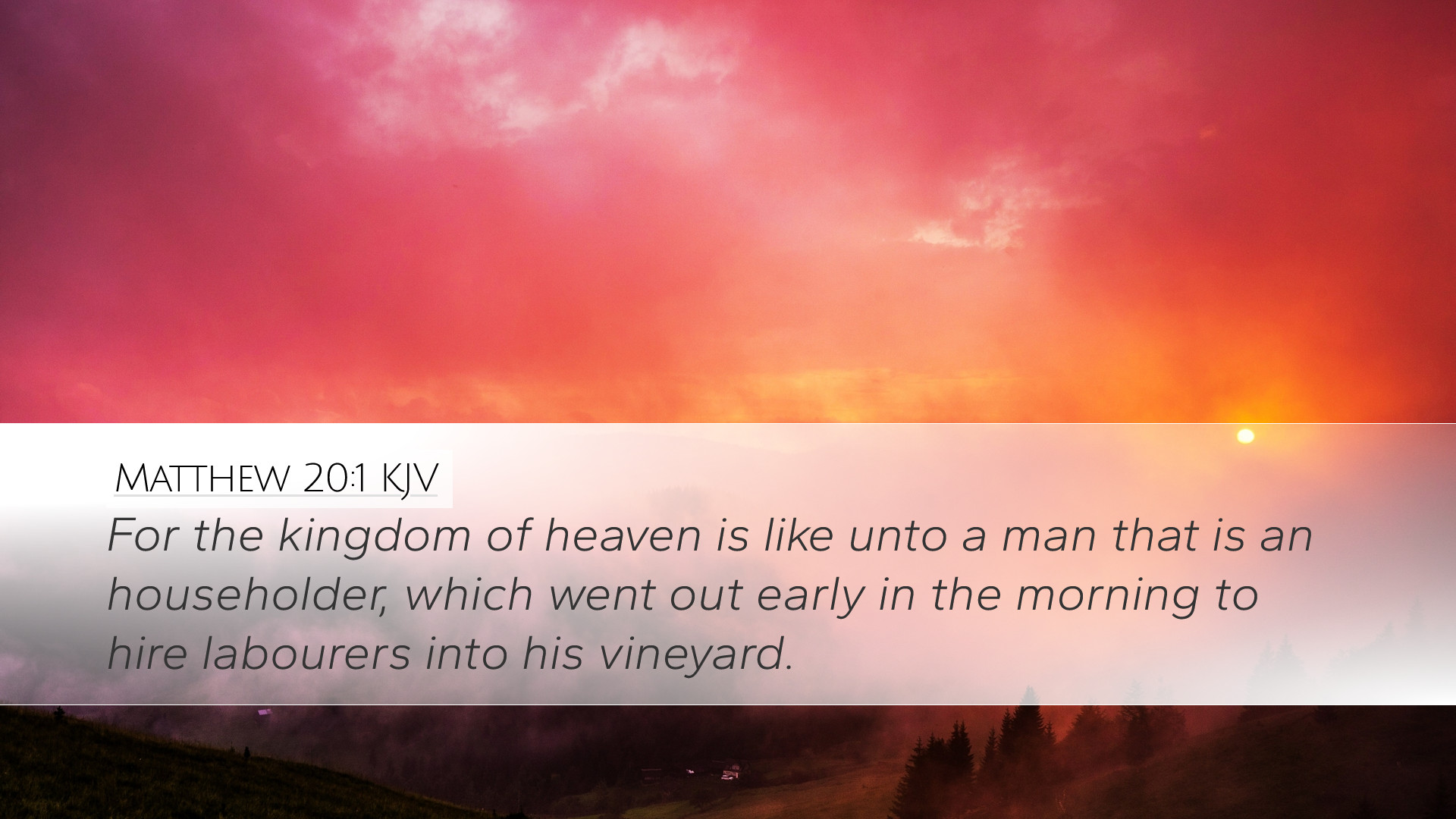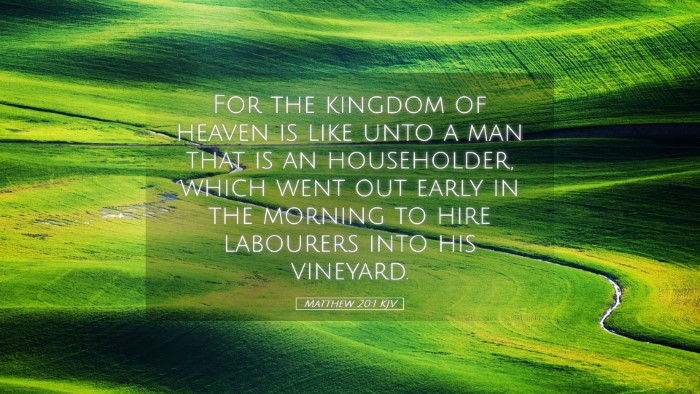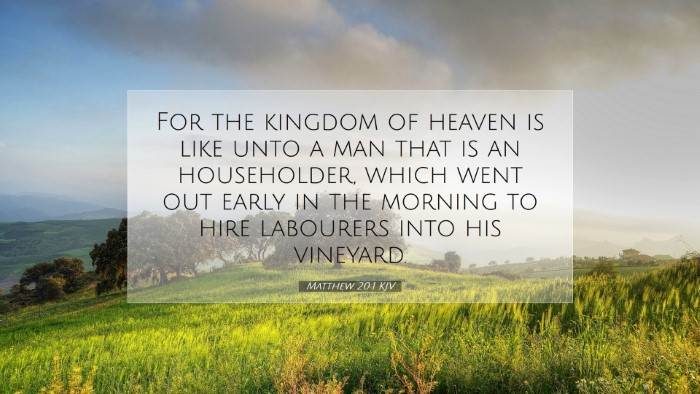Commentary on Matthew 20:1
Matthew 20:1 states: "For the kingdom of heaven is like unto a man that is an householder, which went out early in the morning to hire labourers into his vineyard." This verse introduces one of the most profound parables of Jesus, illustrating the nature of God's kingdom through the story of a landowner hiring laborers for his vineyard.
Introduction to the Parable
This parable, known as the Parable of the Workers in the Vineyard, opens up discussions on grace, mercy, and the equitable nature of God's kingdom. It invites believers to reflect on their understanding of divine justice and reward.
The Householder's Intent
The "householder" represents God, and his vineyard symbolizes the work of the kingdom. Albert Barnes notes that the householder's activity signifies God's initiative in recruiting workers for His harvest, emphasizing His desire for ample laborers in His service (cf. Matthew 9:37).
Matthew Henry further elaborates that the householder’s diligence in seeking workers early in the morning demonstrates God’s proactive approach and relentless pursuit of humanity, offering them opportunities for service and blessings.
The Call to Work
The reference to hiring laborers “early in the morning” signifies the urgent need for workers in God's vineyard. Adam Clarke highlights that this urgency is reflective of the time sensitivity of Gospel ministry and the mission of the church, urging believers to be diligent in their calling (cf. 2 Corinthians 6:2).
Moreover, this early hiring indicates a gracious invitation extended to all, showcasing that God does not limit His call based on societal standards or prior qualifications. God's kingdom is open to all who are willing to work.
Wages of Grace
The mention of hiring laborers also leads us to consider the wages promised. The householder agreed to pay a “penny” (a denarius, the typical daily wage) for their labor. Matthew Henry points out that this wage signifies the grace offered to those who respond to God’s call, which is not earned by works but is a gift freely given.
Barnes notes that the promise of a set wage serves as a metaphor for eternal life—a gift that is granted to all who believe, despite when they begin to serve in their spiritual journey.
The Equity of the Kingdom
This verse transitions into a broader discussion on the kingdom of heaven's economy, one that often challenges human notions of fairness. As the parable progresses, we see that the workers hired later in the day receive the same wages as those who worked the entire day (Matthew 20:8-10).
Clarke emphasizes that this outcome illustrates the boundless generosity of God. The householder declares, “Is it not lawful for me to do what I will with mine own?” This statement reinforces God's sovereignty in His kingdom, where divine standards of equity may differ from human standards.
Responses to Grace
The workers' response to their payment exposes a key theme — the human tendency to compare and feel entitled. Those who worked all day grumbled against the householder, claiming injustice. Henry remarks that their discontent reflects a misunderstanding of divine grace and the spirit of entitlement that can arise within the faithful.
In the context of kingdom work, Barnes explains that believers should foster a spirit of gratitude rather than comparison. The focus should be on God’s generosity rather than on perceived inequity among workers. The parable teaches that God’s grace is abundant and freely bestowed to all who accept His invitation regardless of their time of service.
Implications for Today’s Believer
As we reflect on Matthew 20:1 and the ensuing parable, several implications emerge for today’s believers:
- The Nature of God’s Call: Like the householder, God actively seeks those to work in His vineyard, indicating that everyone has a role in His kingdom.
- The Generosity of Grace: God's grace is not limited by our works or understanding of fairness; it extends to everyone equally.
- Focus on God’s Generosity: Believers should embrace a mindset of gratitude and humility rather than entitlement, recognizing that all gifts from God are a result of His mercy.
- Responding to the Call: Each individual is called to respond to God’s invitation to labor in His vineyard, no matter the stage of life they find themselves in.
Conclusion
Matthew 20:1 opens a window into the character of God and the ethos of His kingdom. By presenting a householder who actively seeks laborers for his vineyard, this parable serves as a powerful reminder of God's grace, the calling of His people, and the nature of His rewards. The narrative encourages believers to appreciate and respond to God's call, while recognizing that in the realm of grace, God dispenses His blessings as He pleases. Those who labor in His vineyard, regardless of when they begin, will receive the fullness of His love and grace.


